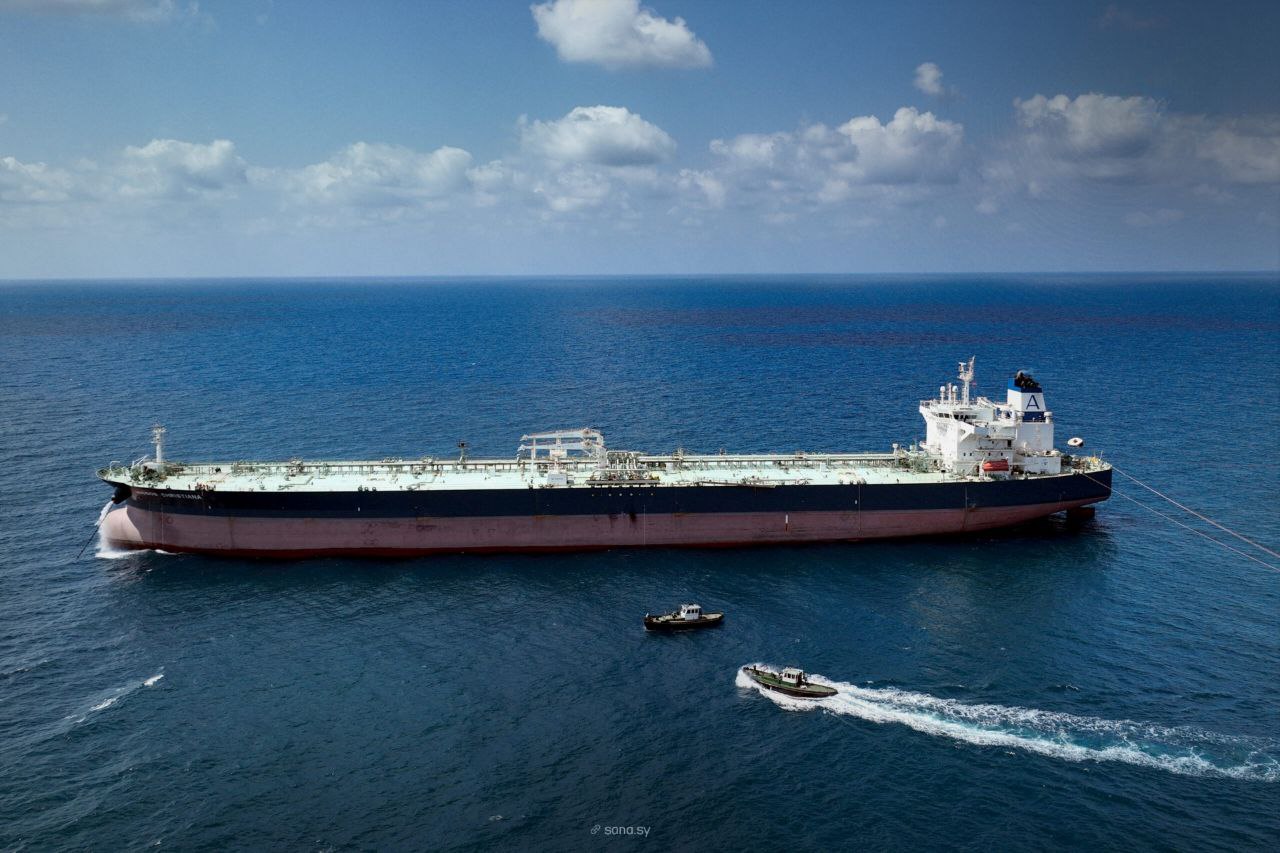
The Syrian Oil Transport Company announced the export of its first crude oil shipment in 14 years, with 600,000 barrels of heavy oil exiting Tartous port for global markets. This step represents a milestone in the reconstruction of the Syrian economy after years of war and international sanctions.
Operational Logistics and Local Efforts
The export operation was carried out based on an agreement with Bserf Energy, a global company specializing in crude oil trading. Riyad Jubasi, Deputy Director of the General Administration of Oil and Gas at the Ministry of Energy, confirmed that this shipment is a practical test to verify the readiness of the transport lines, tanks, and marine terminal, noting readiness was good without technical issues.
Maan Pasha, Director General of the Syrian Oil Transport Company, said exported oil is sourced from Syrian fields representing a surplus for the needs of the Baniyas and Homs refineries, currently operating at maximum capacity. He explained petroleum derivatives are sufficiently available in local markets, and exporting surplus contributes to supporting the national economy by providing hard currency.
Economic and Strategic Importance
This step represents a significant achievement within the Ministry of Energy’s plans to strengthen Syria’s presence in foreign oil markets, revitalize the oil sector, expand cooperation with international companies, and secure capital.
Syrian oil exports have witnessed remarkable developments: in 2010, export volume reached 380,000 barrels per day in the pre-war period. Between 2011-2024, exports became almost non-existent due to war and sanctions imposed on the country. In September 2025, 600,000 barrels were exported in the first export shipment in 14 years.
Pasha notes that current problems lie in the inherited infrastructure, explaining there is an ongoing project to renovate the Ministry of Petroleum’s facilities, relying on local efforts and personnel. This highlights the technical and logistical challenges facing Syria’s oil sector—devastated by years of war.
Future Prospects and International Cooperation
Subsequent exports are expected to follow in the coming period. Syria recently signed an $800 million memorandum of understanding with DP World to develop, manage, and operate a multi-purpose terminal in Tartous, enhancing export logistics capabilities.
Discussions were also held with the British company Gulf Sand John Bell regarding cooperation in the oil sector and the possibility of the company resuming work to rehabilitate oil fields in Syria—confirming the government’s commitment to establishing international partnerships.
A Promising Future for Syria’s Oil Sector
Syria’s return to oil exports after a 14-year hiatus represents a positive sign of the beginning of economic recovery, despite the significant challenges remaining. The success of this step depends on several factors, including political and security stability of the oil fields, the development and modernization of the oil sector’s infrastructure, enhanced international cooperation with specialized global companies, and finally, the complete lifting of international sanctions on the Syrian energy sector.








